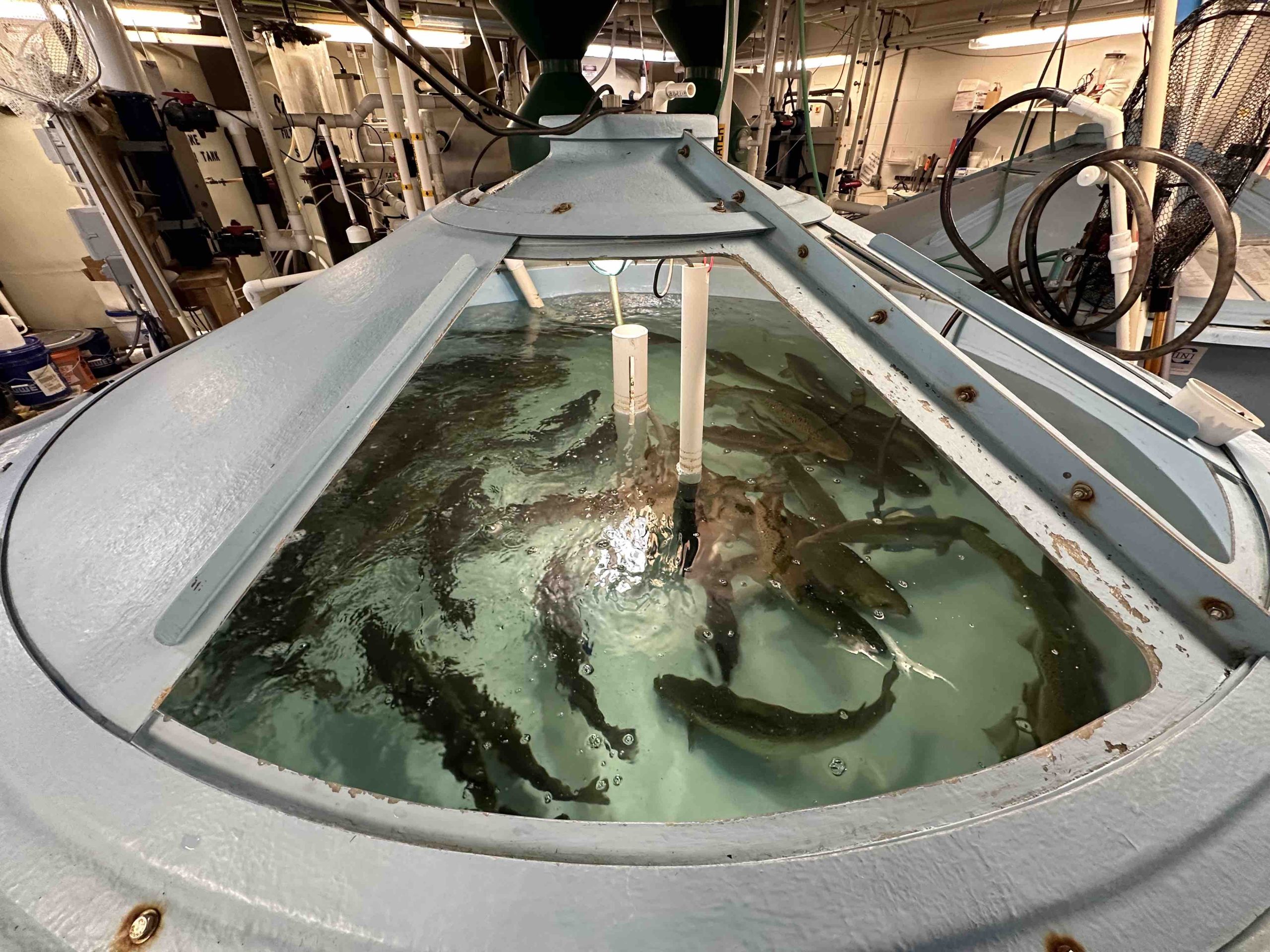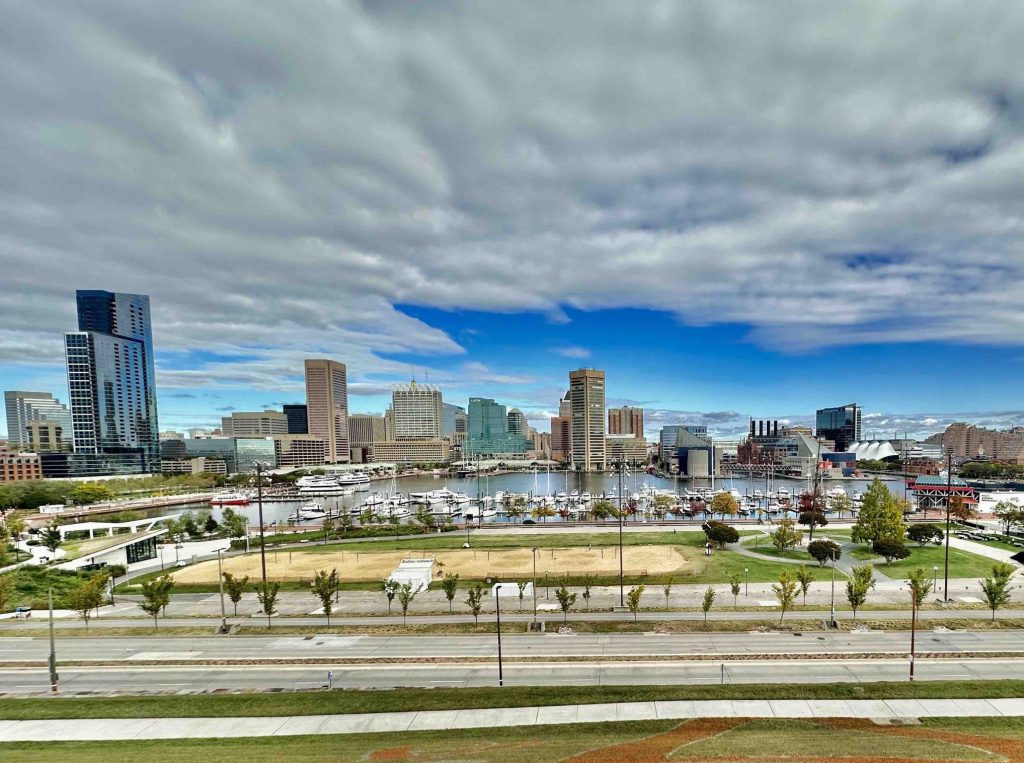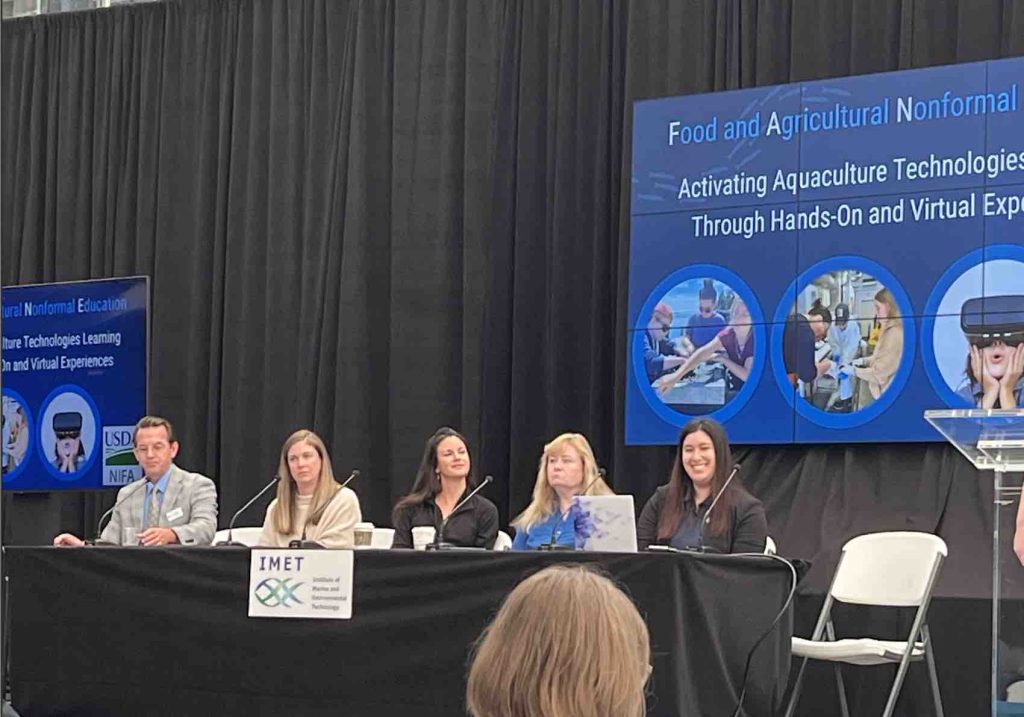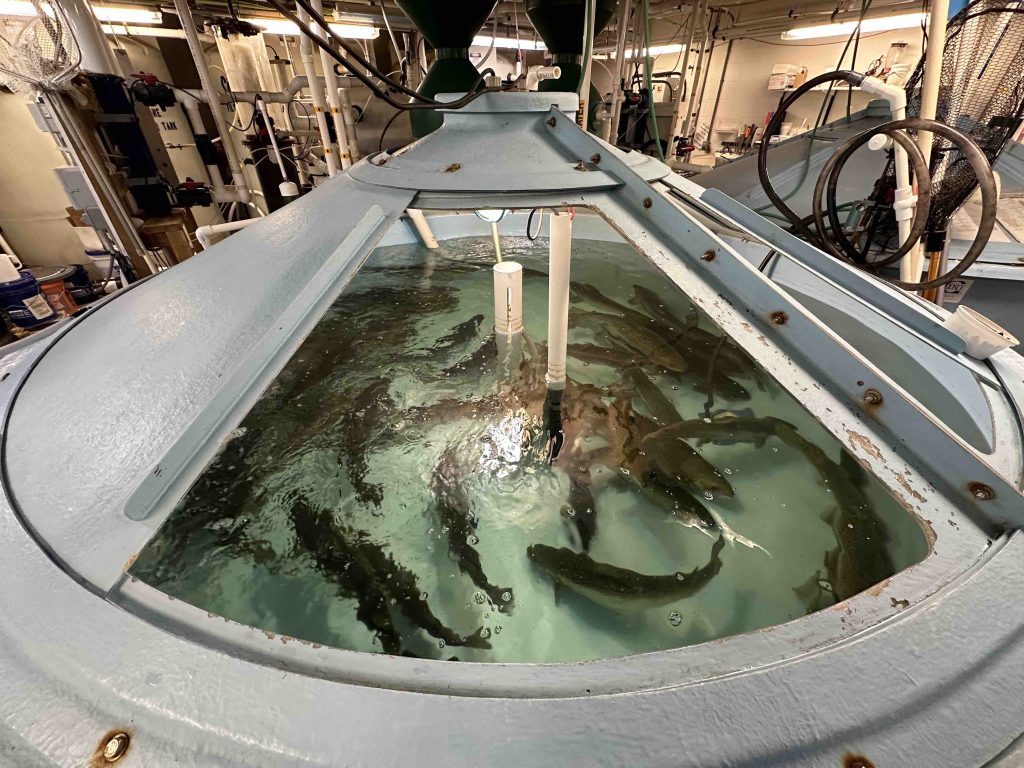
Second Annual Sustainable Aquaculture Systems Supporting Atlantic Salmon (SAS2) Conference Highlights Innovations in US Land-based Aquaculture

BALTIMORE, MD – The Institute of Marine and Environmental Technology (IMET) part of the University of Maryland Baltimore County, welcomed a community of aquaculture experts from both the U.S. and abroad during the 2nd annual SAS2 Conference, held between October 17-20. This project in partnership with the University of Maine Aquaculture Research Institute, funded by the US Department of Agriculture (USDA), highlighted the value of collaborative research and partnerships.
IMET Director, Russell Hill, set the stage, emphasizing the transformative potential of sustainable aquaculture, showcasing how the SAS2 project champions responsible salmon practices nationwide. Project Director, Dr. Yonathan Zohar, noted the reality that the U.S. imports 90% of its salmon. Such a heavy reliance on international sources underscores the urgency to bolster domestic salmon production, ensuring a sustainable and self-reliant supply chain.
Throughout the event, participants engaged in multidisciplinary discussions focusing on practical measures to reduce carbon footprints, innovative uses of waste in aquaculture, and the nuances of land-based salmon farming. Comprehensive panels also touched on the intricacies of U.S. aquaculture permits, risk assessments, and off-flavor mitigation

Leading the way in educational initiatives, Scarlet Tudor and an undergraduate student, Katarina Minas, from the Aquaculture Research Institute (ARI) at the University of Maine provided attendees with an immersive experience via a virtual reality (VR) tour of UMaine’s Center for Cooperative Aquaculture Research (CCAR). Through advanced imaging techniques, she showcased various facets of the facility, including her favorite, the lumpfish room. Minas envisions this VR tour as a critical tool for educators, enabling students from remote parts of Maine to learn about aquaculture and its career prospects.
Keynote speaker, Matthew Craze from Spheric Research, shed light on the shift in land-based aquaculture, spotlighting Norway’s adoption of recirculating aquaculture systems (RAS) in salmon hatcheries and its innovative strides in supply chain management. Meanwhile, Daisy Berg from New Seasons Market shared a story of the Pacific Northwest’s evolution from a staunch wild salmon stronghold to recognizing the pivotal role of aquaculture innovations like RAS in sustaining wild salmon populations. Her insights challenged long-held perceptions and highlighted the synergy between traditional practices and modern innovations.
During the graduate student showcase, Halli Bair, an ARI student of Heather Hamlin, Director of the School of Marine Sciences, delved into her work focused on broodstock and offspring quality in Atlantic salmon. Her work aims to understand embryo survival rates in commercial hatcheries. This research could potentially reshape industry practices, offering an avenue to predict and improve fish performance early in the production lifecycle.

Culminating the conference, Steve Summerfelt from Superior Fresh and Steering Committee Chair of the SAS2 project celebrated the collective ambition of attendees, articulating a unified vision: to solidify the U.S.’s position as a global leader in sustainable aquaculture. This conference not only celebrated past achievements but also set a clear goal for the U.S. aquaculture community, charting a path towards a sustainable and self-reliant future.

